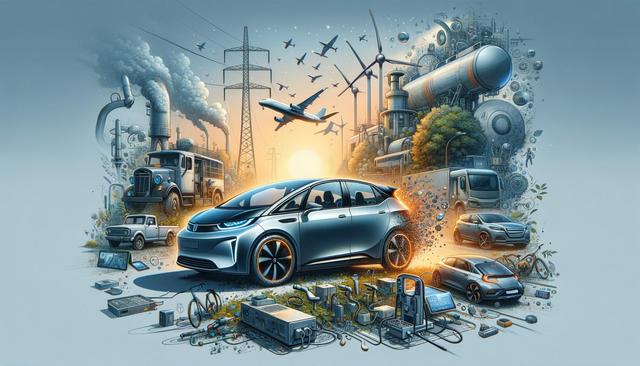Understanding the Rise of Electric Vehicles
The global shift toward electric vehicles (EVs) has accelerated significantly in recent years. With increased awareness around climate change and advancements in battery technology, electric vehicles are no longer a niche offering—they’re becoming mainstream. The worldwide sale of electric cars has surged, with millions of units sold annually across North America, Europe, and Asia. Governments and manufacturers alike are investing heavily in the marketing of electric vehicles, aiming to reduce carbon emissions and transition to cleaner energy sources.
The driving force behind this transformation includes improved electric vehicle machines and drives, government incentives, and a growing network of charging infrastructure. Consumers are increasingly drawn to the convenience of home charging, lower maintenance costs, and the long-term savings associated with EV ownership. As this trend continues, we’re seeing a broader selection of models that cater to various needs—from compact city cars to rugged electric trucks.
Top-Rated Electric Vehicles to Consider
When it comes to choosing among the top electric vehicle options, several models stand out for their balance of range, performance, and design. While specific brand names are avoided here, a number of compact sedans, crossover SUVs, and electric pickup trucks have earned high praise from industry experts and consumers alike. These vehicles typically offer:
- Impressive electric range (over 250 miles per charge)
- Quick acceleration and responsive handling
- Advanced driver-assistance features
- Spacious and tech-forward interiors
Among the best-performing EVs available today are those that combine cutting-edge battery technology with sleek design and robust safety features. Whether you’re commuting daily or planning longer road trips, these vehicles provide a practical and enjoyable driving experience. Their popularity also contributes to the increasing worldwide sale of electric cars, reflecting a broader shift in consumer preferences.
Affordability and Accessibility of Electric Cars
A major factor influencing EV adoption is electric car affordability. While early electric vehicles were often priced at a premium, today’s market offers a wider range of options at various price points. Many automakers now produce compact and mid-size EVs that are competitively priced with their gasoline-powered counterparts, especially when factoring in federal and state incentives.
Key elements that enhance affordability include:
- Lower fuel and maintenance costs over time
- Eligibility for tax credits and rebates
- Reduced total cost of ownership across the vehicle’s lifespan
Affordability also ties into the increasing demand and production volume, which helps bring down manufacturing costs. As production scales and supply chains mature, consumers can expect more accessible pricing across a broader range of electric vehicle models.
Engineering Behind Modern EVs
Behind every successful EV lies a complex system of components working in harmony. The design analysis and application of electric vehicle machines and drives are crucial to delivering the efficiency and performance consumers expect. Electric motors must be carefully engineered for optimal torque delivery, energy efficiency, and minimal environmental impact.
Key areas of focus in EV engineering include:
- Battery design and thermal management
- Lightweight materials for improved range
- Regenerative braking systems
- Advanced power electronics and control systems
These innovations not only improve performance but also enable manufacturers to tailor vehicles to specific driving needs, whether that’s urban commuting or off-road capability. As research and development continue, we can anticipate even more refined electric vehicle machines and drives that push the boundaries of what’s possible in electric mobility.
The Future of EVs and Consumer Adoption
Looking ahead, the future of electric vehicles appears promising. With global automakers committing to electric-only lineups over the coming decades, the marketing of electric vehicles will only intensify. This will likely include a focus on environmental benefits, lower operating costs, and the integration of smart technologies such as autonomous driving and vehicle-to-grid communication.
Consumer adoption will be influenced by several factors:
- Expansion of charging networks
- Innovative vehicle designs tailored to lifestyle needs
- Continued improvements in battery technology
- Greater awareness through educational campaigns and test drive events
As more people experience the benefits of EV ownership firsthand, the shift away from internal combustion engines will become more pronounced. This evolution is not only about transportation—it’s part of a larger movement toward sustainable living and technological innovation.
Conclusion: Making an Informed EV Decision
Choosing an electric vehicle today means joining a global movement toward cleaner, smarter transportation. Whether you’re motivated by environmental consciousness, cost savings, or cutting-edge technology, there are many well-regarded EV options to explore. The growing worldwide sale of electric cars reflects the increasing trust and interest consumers have in this evolving technology.
By understanding the design analysis and application of electric vehicle machines and drives, recognizing the marketing of electric vehicles, and considering electric car affordability, you’ll be better equipped to make an informed decision. As electric mobility continues to gain momentum, now is an excellent time to consider making the switch and contributing to a more sustainable future.

Leave a Reply